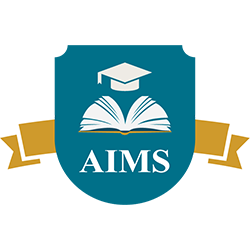Are you considering pursuing higher education in Canada during the January 2026 intake? If you missed the Fall intake or need extra time to prepare, the Winter intake provides a fantastic opportunity to start your academic journey. With fewer international students and a more personalized experience, this intake is gaining popularity, especially for postgraduate courses. This guide will walk you through everything you need to know about applying for the January 2026 intake in Canada, including key dates, application processes, and university options.
Why Choose January 2026 Intake for Studying in Canada?
Canada’s education system is highly respected globally, and international students flock to its universities for world-class learning. The January intake is the second-largest intake after the Fall intake, and here’s why it might be the perfect fit for you:
- More Time to Prepare: Start your education in January, giving you ample time to improve your academic scores and language proficiency.
- Less Competition: Fewer students apply for the Winter intake, which means you have a higher chance of being accepted into competitive programs.
- Personalized Experience: With fewer students, you’ll receive more attention from professors and smaller class sizes, helping you build deeper connections.
- Start Without Delay: If you missed the September intake or are ready to take the leap, the Winter intake gives you a second chance to start your academic journey.
Key Dates for January 2026 Intake
To ensure a smooth application process, it’s essential to keep track of deadlines for the January 2026 intake in Canada. Here’s a general timeline for your reference:
| Activity | Timeline |
|---|---|
| Research & Shortlist Universities | March – June 2025 |
| Submit Applications | July – October 2025 |
| Track Acceptance Offers | August – November 2025 |
| Apply for Study Permit | August – December 2025 |
| Final Documentation | November – December 2025 |
| Arrival in Canada | December 2025 – January 2026 |
Application Deadlines for January 2026 Intake in Canada
The application deadlines for the January 2026 intake vary by university and program. It’s crucial to stay ahead of the deadlines to ensure you don’t miss out on your desired program. Below is a general overview of the application deadline timeline for Canadian universities:
| University | QS World Ranking (2026) | Application Deadline | Popular Programs |
|---|---|---|---|
| University of Toronto | 29 | Sept. 15, 2025 (Graduate) | Computer Science, Business |
| McGill University | 27 | Nov. 10, 2025 (Undergraduate) | Business, Computer Science |
| University of British Columbia | 40 | Jan. 15, 2026 (Some programs) | Engineering, Data Science |
| University of Waterloo | 119 | Feb. 1, 2026 | AI, Business, Engineering |
| Queen’s University | 191 | Nov. 20, 2025 | MBA, Environmental Studies |
| University of Alberta | 94 | Nov. 1, 2025 (International) | Computer Science, Nursing |
Note: Deadlines may vary depending on the specific program you are applying to. Some programs may offer rolling admissions or have later deadlines. Always verify the official website of the university for the most up-to-date information.
Popular Programs Available in January 2026
While the January intake offers fewer options compared to the Fall intake, there are still many popular programs that you can apply for, especially in fields like Business, Engineering, Computer Science, and Health Sciences. Some of the top programs include:
- Master’s Programs: Including MBA, MS, and MA degrees.
- Diplomas and Certifications: Particularly in Business, Engineering, and Healthcare.
- Specialized Programs: In fields like Data Science, Nursing, and Artificial Intelligence.
Top Universities Offering January 2026 Intake
Many prestigious Canadian universities offer programs during the January 2026 intake. Here’s a list of some notable ones:
| University | QS World Ranking (2026) | Application Deadline | Popular Programs |
|---|---|---|---|
| University of Toronto | 29 | Sept. 15, 2025 (Graduate) | Computer Science, Business |
| McGill University | 27 | Nov. 10, 2025 (Undergraduate) | Business, Computer Science |
| University of British Columbia | 40 | Jan. 15, 2026 (Some programs) | Engineering, Data Science |
| University of Waterloo | 119 | Feb. 1, 2026 | AI, Business, Engineering |
| Queen’s University | 191 | Nov. 20, 2025 | MBA, Environmental Studies |
| University of Alberta | 94 | Nov. 1, 2025 (International) | Computer Science, Nursing |
Application Process for January 2026 Intake
The application process for the January 2026 intake is straightforward but requires attention to detail. Follow these steps to ensure that you submit a complete and timely application:
- Research Canadian Universities: Start by researching universities that offer your desired program during the January intake. Review their QS rankings, program availability, and requirements.
- Prepare Your Application Documents: Make sure you have the necessary documents, including:
- Academic transcripts
- English proficiency test scores (IELTS, TOEFL, etc.)
- Letters of Recommendation (LORs) for postgraduate courses
- Statement of Purpose (SOP)
- Proof of funds
- Submit Your Application: Apply through the university’s official portal before the deadline. Ensure that all information is accurate and complete.
- Track Your Application: Monitor your application status regularly. If accepted, you’ll receive an offer letter via email.
- Apply for a Study Permit: After receiving your offer letter, apply for your student visa as soon as possible.
- Prepare for Arrival: Once your visa is approved, arrange accommodation and book your flights. Arriving in Canada before classes begin will give you time to settle in.
Financial Considerations: Scholarships and Costs
While the January intake offers fewer scholarships compared to the Fall intake, some universities still provide merit-based and need-based scholarships for international students. Be sure to check the financial aid section of your chosen university’s website for specific scholarship opportunities.
Essential Documents for January Intake
Ensure that you gather all the essential documents well in advance. Missing any documentation can delay your application process. The following documents are typically required:
- Academic Transcripts
- English Proficiency Test Scores (e.g., IELTS, TOEFL)
- Statement of Purpose (SOP)
- Letters of Recommendation (LORs)
- Proof of Funds
- Passport Copy
- Visa Documents (once the offer letter is received)
Work Opportunities for International Students in Canada
As an international student, you can work part-time (20 hours/week) during the semester and full-time (40 hours/week) during breaks. The Winter intake gives you time to secure a part-time job before classes begin, making it easier to manage your finances.
Key Benefits of Choosing the January Intake
- Less Competition: With fewer applicants, you may have a higher chance of acceptance.
- Personalized Attention: Smaller class sizes mean more focused interaction with professors and students.
- Easier Transition: The Winter intake allows you to arrive in Canada before the semester starts, giving you time to adjust to the cold weather and culture.
Challenges to Consider for January Intake
- Fewer Program Options: Not all programs are available during the Winter intake, so you may have limited choices.
- Harsh Winter Weather: Be prepared for cold temperatures and snow when arriving in Canada in January.
Conclusion
The January 2026 intake in Canada provides a valuable second opportunity for international students. With fewer applicants and a personalized academic experience, it offers a smoother path to achieving your academic goals. Be sure to follow the application deadlines and prepare the required documents well in advance to make your journey to Canada seamless and successful.
Frequently Asked Questions (FAQs)
What are the key intake periods for Canada?
Canada has three main intake periods:
Fall Intake (September)
Winter Intake (January)
Summer Intake (May)
Can I apply for a Master’s program during the January intake?
Yes, many universities offer graduate programs such as MBA, MS, and MA during the January intake.
What are the application deadlines for the January 2026 intake?
Application deadlines vary by university but are generally from September to November 2025. Be sure to check your program’s specific deadline.
Is the January intake a good option for international students?
Yes, the January intake is perfect for students who missed the Fall intake or need more time to prepare. It offers fewer applicants and smaller class sizes.

AIMS Education is the best study abroad consultancy firm guiding students in selecting courses, universities and help them apply and secure their student visas. Also, AIMS Education is a British Council-certified agent and is listed on the British Council global agent list. We provide student recruitment services in UK, USA, Australia, Canada, Hungary, Poland, Denmark, Malta, Finland, France, Austria, Spain, Sweden, Malaysia and UAE. Not only this but also AIMS Education is an ICEF Accredited Agent, UCAS Registered Centre, PTE and Language Cert Partner.
